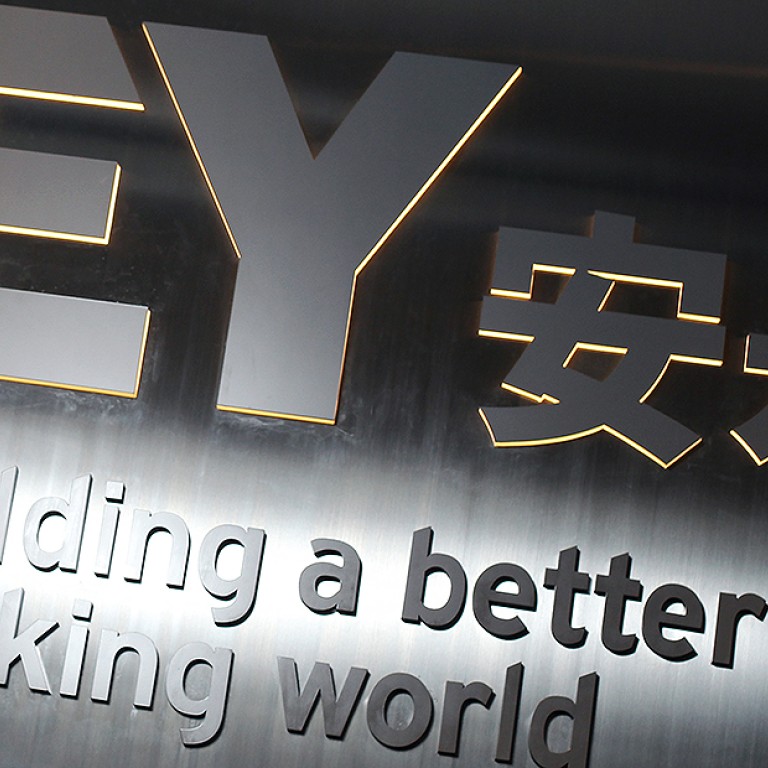
Hong Kong court orders Ernst & Young to hand over mainland audit papers
Ernst &Young's claim that mainland secrecy laws prevented disclosure to city regulator rejected
A Hong Kong court rejected accounting firm Ernst & Young's argument that the mainland's state secrets law meant it could not hand over information to the city's securities regulator.
The landmark ruling by the Court of First Instance supports international regulators wanting access to auditors' papers to investigate mainland companies listed in their markets.
Ernst & Young has deliberately withheld information from the SFC
But analysts say it may prompt the Ministry of Finance to speed up planned reforms that would ban Hong Kong and international accountants from working on the mainland. The reported on Monday that the ministry planned to implement rules this year preventing international accountants from conducting audits on the mainland alone.
They would have to team up with mainland accountants to do so. The rules also say all accountants must strictly follow the state secrets law and should not take audit papers out of the mainland.
Brokers said the new rules were prompted by concerns in Beijing that overseas regulators could force accountants or mainland firms to disclose government or company information while checking their books.
Mainland e-commerce giant Alibaba, which is planning to list in the US, and other technology firms have gathered sensitive data on many firms and individuals on the mainland.
Mainland law has a wide definition of "state secrets", which can range from accountants' working notes to student examination papers.
Ernst & Young (EY) said the papers in question in the case were state secrets so it could not comply with nine requests from the Securities and Futures Commission (SFC) between April 2010 and October 2011 for auditing papers related to listing candidate Standard Water. The SFC filed a writ against EY in 2012.
"The court has come to the conclusion that EY has deliberately withheld from SFC information in its knowledge which is responsible to the notices," Mr Justice Peter Ng Kar-fai said in a written judgment released yesterday.
The court accepted a witness' opinion that the mainland's secrecy law was designed to "safeguard the security of the state's economy and protect the public interests of society".
As such, the law "does not impose a blanket prohibition on cross-border transmissions of audit working papers to overseas securities regulatory authorities", the court said.
Instead, the law banned only the transmission of state secrets, but EY could not prove its papers contained such information.
EY was ordered to pay court costs. It said it would review the judgment before deciding whether to appeal
SFC chief executive Ashley Alder said yesterday: "This case is primarily about the obligations of an accounting firm in Hong Kong to comply with requirements under Hong Kong law. The case is not about [mainland] law.
"Auditors should not withhold information which is in their possession and sought by the SFC in connection with suspected misconduct in Hong Kong's markets."
The president of the Hong Kong Institute of Certified Public Accountants, Clement Chan, said the ruling clarified the powers of the regulator.
"But it has not solved the disputes between China and the overseas regulators, which have different interpretations of the mainland secrecy law.
"The Ministry of Finance's new rules will continue to ban accountants from taking our papers out of the country while the international regulators force us to do so," Chan said.

